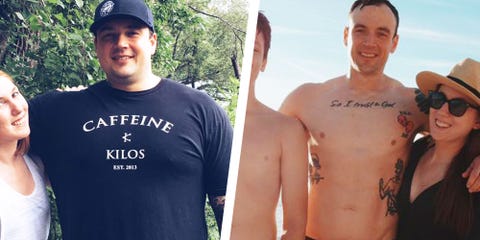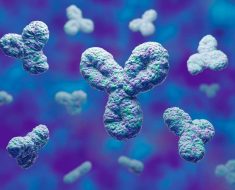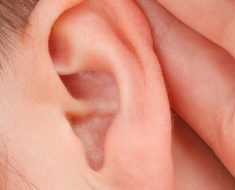When Aldon Tibbs set out to gain weight in 2013, his goal was to pack on muscle. But as Tibbs soon found out, sometimes it’s difficult to separate strength and size. Tibbs, 38, who works as a personal trainer in Saint Paul, Minnesota, recalls that he’d become passionate about powerlifting at the time. While he was staying consistent in the gym, he was also overdoing it while he refueled, undermining his gains.
Like many people, it took a candid photograph for the reality to settle in: “My boss took the staff out to a Timberwolves game for Christmas. There were a lot of photos taken that night and when I saw myself in them, I realized that I wasn’t just strong, I was fat,” Tibbs says. “It was the first time that I saw myself as anything other than just a big muscular dude, and I realized that while I was strong, I was definitely not healthy.” Here’s how Tibbs took control of his diet and got back in shape.
Many people would find it surprising that you gained weight despite being a regular in the gym. What was the main contributor?
Diet, absolutely. My workouts have always been very consistent and I never miss time in the gym. But I began eating more—probably double or triple the calories I’d been eating before. A normal day of meals was a box of hamburger helper, Chipotle, and Byerly’s hot bar and salad bar. The salads alone were probably around 3,000 calories.
When did you hit your peak? What was the turning point?
I was 36 or 37 at my heaviest, which was 270 pounds. I felt incredibly strong, but that was the extent of any positive feelings. Simple tasks like bending over to tie my shoes and walking up the stairs became difficult. Even just finding clothes that fit became an unpleasant chore.
How did your workout evolve? Did you introduce more cardio to help burn fat?
The amount of time that I spent in the gym didn’t really change. I did switch over to a little bit more of a bodybuilding style workout instead of a powerlifting workout. I started doing three 10-minute walks per day and changed my diet. I’d been eating anything and everything I wanted. When I realized that I needed to lose weight, I started with the keto diet, followed by the “if it fits your macros” diet, and then finally the vertical diet, which I still follow today.
I never counted calories, but I’m very intuitive about portions. I decreased the amount of food that I was eating in addition to changing the foods that I ate. I still ate pizza and burritos while losing the weight, but I went from eating the whole pizza to eating just a couple of slices. My goal was to get down to 242 pounds, and when I reached that goal, I felt better and stayed on course. Now I’m 190 pounds.
So, the big changes were to your diet. Not necessarily running more or working out differently.
In the process of losing 80 pounds, I never did one day of cardio. My workouts were always consistent. Eating fewer calories was the biggest contributor to losing the weight. Because I am a personal trainer, working out is part of my life, and I never lost motivation for that. Five days a week I lift, three times a day I walk. This isn’t something that I think about doing—it’a just habit and ingrained in my routine.
How long did it take you to get back in shape?
I lost a total of 80 pounds over the course of about a year. It feels great, obviously. I did lose a lot of strength in the process, but losing weight and seeing the pounds come off feels really good. I can climb four flights of stairs up to my apartment without hesitation, and cutting my toenails isn’t difficult anymore. The foods that I’m eating make me feel better throughout the day, too. I have more energy and feel less bloated. Losing the weight has definitely given me confidence in the way that I look. My family takes a trip to Florida every year and now I can sit on the beach without a shirt on and feel confident.

Aldon Tibbs
How soon did people begin to notice?
It took about 40 pounds for people to really start noticing that I was leaning out. Everybody wanted to know what the “secret” was, because everyone is trying to change their body in some manner. The first question was, “How much cardio are you doing?” I was really honest about it—that it was all diet. I don’t think people love hearing that answer, but it’s the truth. The weight has been off for a while now, but people still comment on it all the time.
So are you in maintenance mode now? Or are you focused on the next goal?
I’ll never be finished. I have put powerlifting in the rearview mirror. I’m about to turn 40 and still strive to be as strong as my body will allow me to be. Body building workouts are fun to me, and I would like to do a bodybuilding show in the future.
What’s the best beginner-friendly advice that you give to your clients?
Find a fitness routine that you enjoy, and that you can continue to do consistently, whether it’s powerlifting, CrossFit, bodybuilding or functional training. Lift weights in some aspect. I also encourage everyone to do three 10-minute walks per day. I truly believe this builds motivation to keep moving. Take a real honest look at what you are eating, too. Most people live fairly sedentary lives and don’t need anywhere near the amount of calories that they’re consuming.
Your son recently got into lifting, too. How often do the two of you lift together?
My son Landon was about ten years old when we first started lifting together. We lift two days a week. In addition to that he lifts at home on his own 4 or 5 days a week. He has about six years of lifting experience, so he’s able to keep the momentum up and lift on his own now.
Why did you feel it was important for him to start lifting and exercising at such a young age?
For as long as I’ve been a dad, I’ve known that I wanted to share my passion for fitness with my son. I’m lucky that he shares it after spending time with me in the gym. He’s now 16 and has already competed in three weightlifting competitions. Developing your strength and being physically active is incredibly important for a long and healthy life. Introducing Landon to exercise early, not just for the physical benefits but the mental and health benefits, helped him develop a passion for exercising that will stick with him for the rest of his life.
Source: Read Full Article





